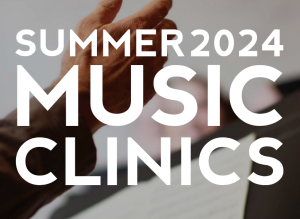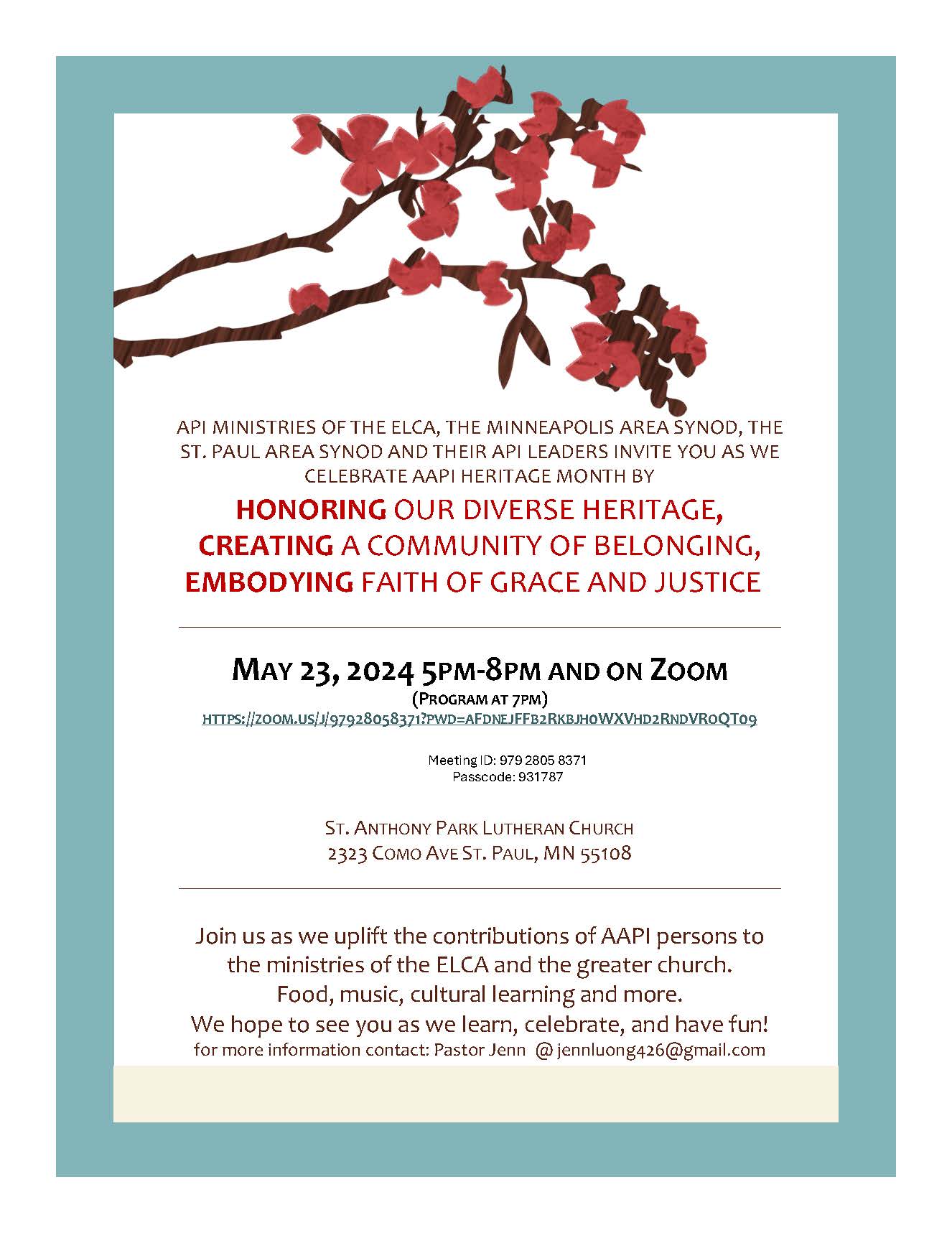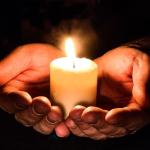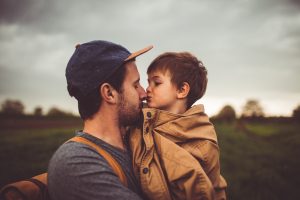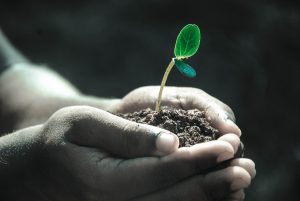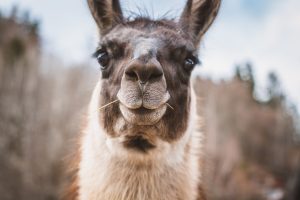Following are updates shared from submissions of the Lutheran Office for World Community and state public policy offices (sppos) in the ELCA Advocacy Network last month. Full list and map of sppos available.
U.N. | CALIFORNIA| COLORADO | MINNESOTA | PENNSYLVANIA| WASHINGTON |WISCONSIN
New York
Lutheran Office for World Community (LOWC), U.N. – ELCA.org/lowc
Christine Mangale, Director
Lutheran Advocacy during CSW68: At the sixty-eighth session of the UN Commission on the Status of Women (CSW68), 37 clergy, lay-leaders, staff and expert delegates joined the Lutheran World Federation (LWF) in New York from Mar. 8-22, especially for the first week.
Delegates came from 20 countries on five continents. The priority theme was: “Accelerating the achievement of gender equality and the empowerment of all women and girls by addressing poverty and strengthening institutions and financing with a gender perspective.”
Lutherans hosted in-person and virtual side-events, parallel events, worship, orientations as both a Lutheran cohort and as part of Ecumenical Women’s network and led a workshop on promising practices to prevent sexual and gender-based violence as well as met governments both in formal mission visits and informally in ad hoc lobby meetings. Lutherans met with UN Women and submitted statements and contributed language to the commission’s agreed conclusions outcome document.
The ELCA has a long history of supporting the work of LOWC at the United Nations on behalf of the wider LWF. Gender Justice has been a pillar of this work since inception and is grounded in the LWF Gender Justice Policy as well as the social teachings of the ELCA. Further, this work matters to the ELCA as it is part of our Ubuntu identity emphasizing connectedness, our commitment to work globally with Lutherans and the ELCA companion synod commitments.
Engagement at CSW68 is about growing a movement of Lutherans who will continue the work for gender justice back in their home contexts.
California
Regina Banks, Director
Many important bills are being heard across policy committees leading up to the next major deadline on our state’s legislative calendar, which requires sending any bills with financial implications to fiscal committees at the end of April.
Some additional bills that we’re advocating on this session include:
AB 2728 (Gabriel) – This bill is a follow up bill to the great housing bill, SB 4, that was passed in 2023. AB 2728 would incorporate new stakeholder feedback and add common sense accountability measures for SB 4 housing, including utilization data reporting.
AB 1851 (Holden) – This bill follows the vetoed AB 249 (Holden) from 2023, which was one of LOPPCA’s lobby day bills last year. The new attempt would create a pilot program to hire a technical assistance organization that would test all potable water system outlets in designated school districts towards the goal of remediating toxic lead levels in school drinking water.
If you’re in California, remember to register for Lutheran Lobby Day on Wed., May 15, in Sacramento! Register here. We’re working on determining our priority bills for Lobby Day. The general policy focus will be on the physical and economic health of our neighbors.
Colorado
Lutheran Advocacy Ministry Colorado (LAM-CO) – lam-co.org
Peter Severson, Director
LUTHERAN DAY AT THE CAPITOL: On Mar. 18, advocates gathered at St. John’s Episcopal Cathedral in downtown Denver to kick off Colorado Lutheran Day at the Capitol! After our morning speakers and lobby training, we walked five blocks to the Capitol to meet with our legislators. The building was buzzing with activity, but every participant got face to face with at least one of their elected officials! Below are a few great photos from the day.
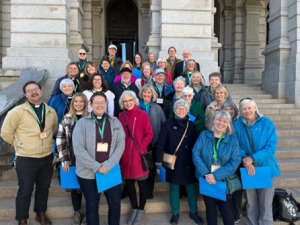
Minnesota
Tammy Walhof, Director
Legislation: Although the Senate electronic recycling bill has bipartisan support, it also has bipartisan opposition. Opposition lobbyists are calling the small upfront fee a tax increase. Action to senators is still very appropriate.
Despite the extreme need for more affordable housing, bonding this year will be relatively small. We need to keep up the pressure. Actions outlined in the Lenten letter challenge are still appropriate.
Events: Director Tammy Walhof is getting many requests for presentations and conversations (pre-pandemic levels). In March, Tammy had the opportunity to talk about her COP28 (International Climate Conference) experiences to about 75 people gathered in-person and more online, drawing participants from across the state. That same week she met with more than forty 9th graders from a South Metro congregation. Following Walhof’s advocacy presentation, the 9th graders wrote letters to their legislators in their small groups.
In April, Walhof has been at Concordia College (Moorhead), the EcoFaith Summit in Duluth (LA-MN was again a partner), and an Apple Valley congregation for an adult forum on COP28. The energy was exciting! More than 300 people gathered in-person for the summit, and online views of the plenary sessions are well over 400. From Thursday through Sunday, Walhof did eight different presentations or group conversations. At Concordia, students also coordinated and led an “Offering of Letters” on e-waste and housing.
Renowned Christian environmental ethicist, Dr. Larry Rasmussen, keynoted the EcoFaith Summit. Twelve-year-old Gigi responded to Dr. Rasmussen’s book, The Planet You Inherit.
Concordia College students organized letter-writing to legislators on campus.
Pennsylvania
Lutheran Advocacy Ministry in Pennsylvania (LAMPa) – lutheranadvocacypa.org
Tracey DePasquale, Director
Pennsylvania Lutherans are eagerly preparing to gather in Harrisburg on May 9 to advocate for funding and policies to tackle hunger and climate change for the sake of our neighbors here and around the globe. We are excited to welcome ELCA Presiding Bishop Eaton and the Rev. Khader El-Yateem, new executive director of ELCA Service and Justice, as we mark 45 years of Lutheran advocacy in Pennsylvania and 50 years of ELCA World Hunger. We will celebrate the legacy and lean into the future as “Church Together for the Sake of the World God Loves.”
 You can be part of the celebration! Artist Freiman Stoltzfus generously donated this gorgeous painting, The Table, as a beautiful representation of the ministry we share and a vision of what it can mean to “Set a Welcome Table.” You can order prints here or sign up to be part of an online auction for the orginail (24” x 36”) oil painting.
You can be part of the celebration! Artist Freiman Stoltzfus generously donated this gorgeous painting, The Table, as a beautiful representation of the ministry we share and a vision of what it can mean to “Set a Welcome Table.” You can order prints here or sign up to be part of an online auction for the orginail (24” x 36”) oil painting.
In addition to work on depolarization, voter access and election security, LAMPa is launching four statewide service and justice networks in April, gathering Lutherans from all seven synods around hunger and poverty, housing and homelessness, human and civil rights and creation care. The networks are intended for mutual support and learning, inspiration, story-gathering, resource-sharing and equipping for advocacy.
In the Capitol: LAMPa staff joined our PA Hunger Action Coalition partners on Apr. 9 to meet with legislative leaders to urge increased funding for food assistance.
Washington
Faith Action Network (FANWA) – fanwa.org
Elise DeGooyer, Executive Director
Washington state’s 60-day legislative session concluded on Mar. 7. Since then, our Policy Engagement Director Kristin Ang and FAN board members Dr. Jasmit Singh and Rabbi Jason Levine traveled to Olympia to join other advocates to witness Governor Inslee sign the bills we advocated for into law. We are celebrating the passage of several bills that will have tangible impacts on our communities, including the Temporary Aid to Needy Families (TANF) bill (HB 1652) to ensure families keep 100% of their child support payments; the Bias Incidents Hotline (SB 5427) to increase and improve data collection of incidents and give more access points to existing resources and legal support for historically marginalized communities; and 100% Zero-emission School Buses (HB 1368) to protect our climate and keep children safe.
We also celebrate significant supplemental budget investments that will make a difference for our neighbors, including over $500 million for budget items FAN supported with hundreds of letters to legislators. For example, $12.23 million was allocated to launch Summer Electronic Benefit Transfer to feed hungry children during summer months and $25.25 million was allocated to the Office of Refugee and Immigrant Assistance for services for newly arrived immigrants who do not qualify for federal resettlement programs. You can find all our successes of the bills and budgets at our website.
FAN staff are moving into what we call our Spring Outreach season. At our annual Spring Summits scheduled for May 5 and June 9, we are excited to celebrate our advocacy, hear concerns and priorities from each other, and strategize for how we might partner together in the months ahead. ELCA Hunger Advocacy Fellow Tomo Duke has met with Congress members and staff such as Rep. Adam Smith and the staff of Rep. Pramila Jayapal this past month and has been working on strategizing for federal legislation advocacy in the areas of the Farm Bill and immigration. Stay tuned for more advocacy opportunities on the federal level.
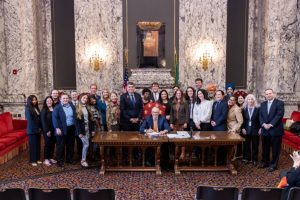
FAN Board Members Rabbi Jason Levine and Dr. Jasmit Singh joined at the signing by the governor of the Bias Incident Hotline bill.
Wisconsin
The Lutheran Office for Public Policy in Wisconsin (LOPPW) – loppw.org
The Rev. Cindy Crane, Director
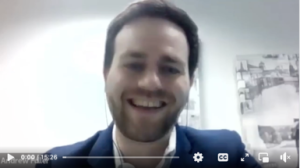
In April, we interviewed Andrew Fuller, ELCA Program Director for Economic Policy, on the Farm Bill, Child Tax Credit, and John R. Lewis Voting Rights Advancement Act: Wednesday Noon Live (15-minute video)
Bills LOPPW Supported: The Wisconsin legislative session has wrapped its major periods for making decisions as the election season has ramped up in the state.
Some pieces of proposed legislation that our office supported passed. We were invited to a bill signing with the Governor on three anti-sex trafficking bills:
- AB 973 /SB 940: Relating to mandatory training regarding human trafficking for employees of community-based residential facilities and owners of certain entities and certain other employees and granting rule-making authority.
- AB 976 /SB 946: Relating to the testimony of a child in a criminal proceeding for a human trafficking crime.
- AB 978 / SB 954: Relating to creation of a Human Trafficking Council and requiring the establishment of county sex trafficking task forces.
Environmental bills – one building an Electric Vehicle infrastructure and one a deicer applicators certification program – passed. We were dismayed that some pieces of legislation related to immigration and juvenile justice that we supported did not pass.
For the Apr. 2 election we interviewed Molly Carmichael who works with the League of Women Voters on two harmful constitutional amendments: Video | Facebook
Despite advocacy by LOPPW and other organizations supporting voting rights, these amendments passed.
Lastly, we are continuing preparation for our October Youth Advocacy Retreat which will take place Oct. 4-6, 2024.
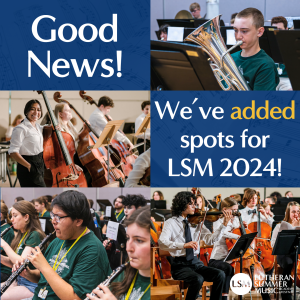 Transforming and connecting lives through faith and music since 1981.
Transforming and connecting lives through faith and music since 1981.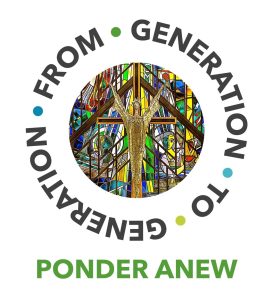 Association of Lutheran Church Musicians
Association of Lutheran Church Musicians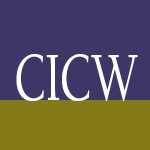

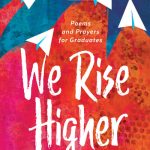 s
s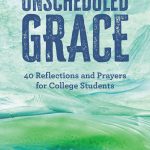 Unscheduled Grace: 40 Reflections and Prayers for College Students
Unscheduled Grace: 40 Reflections and Prayers for College Students 
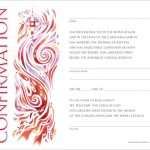 Confirmation Certificates
Confirmation Certificates